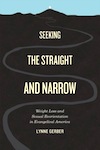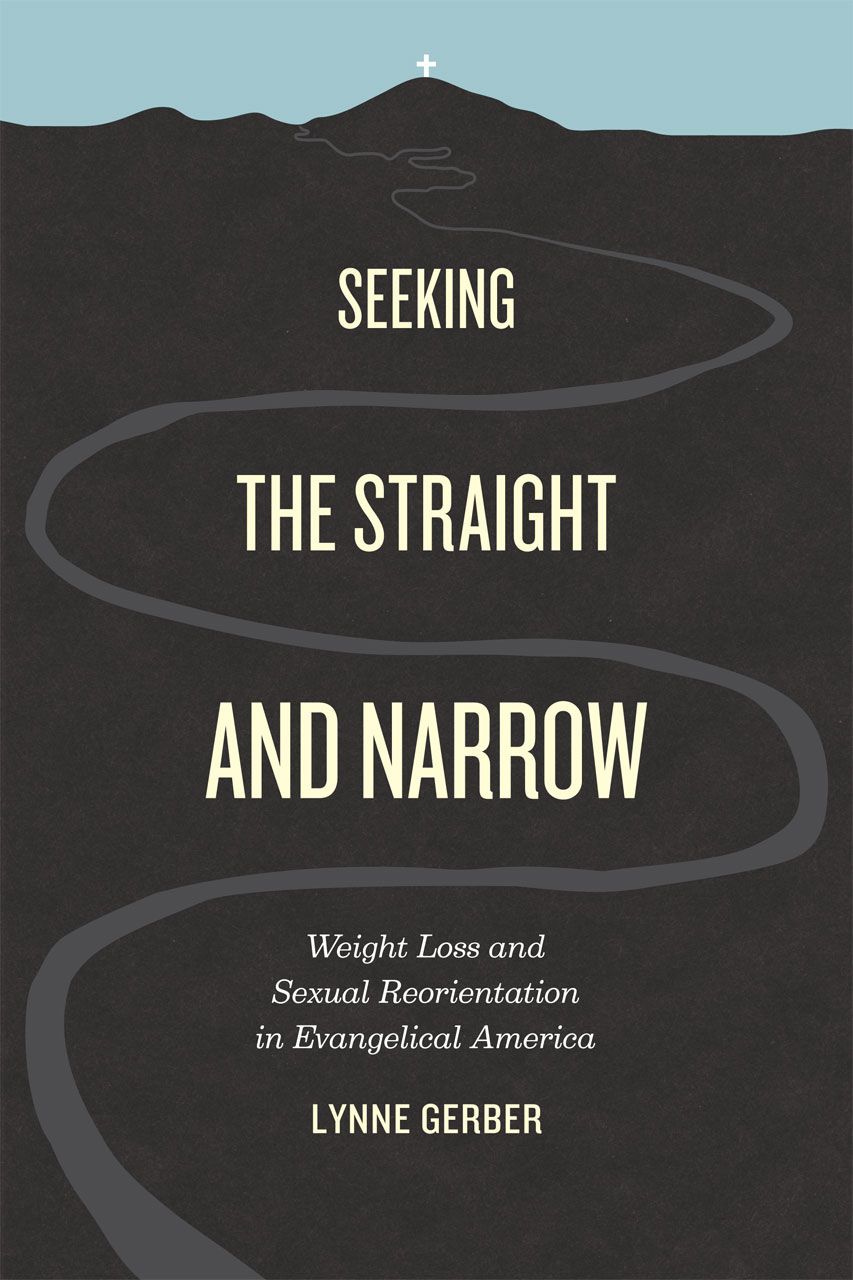 Seeking the Straight and Narrow: Weight Loss and Sexual Reorientation in Evangelical America
Seeking the Straight and Narrow: Weight Loss and Sexual Reorientation in Evangelical America
by Lynne Gerber
The University of Chicago Press. 288 pages, $29.
READING THIS BOOK, which compares the methods and results used by the evangelical Christian weight loss program First Place with those of ex-gay ministries such as Exodus International, I kept thinking about Tina Fey’s adaptation of the book Queen Bees and Wannabes (2002) into the screenplay for Mean Girls. There are moments of judgment so harsh and logic so twisted that they seem to cry out for a comedic intervention to lessen the sting. It’s equally hard not to feel some sympathy for the people featured, who are often expending tremendous effort to change their body size or sexual orientation, struggles that never result in quick changes and require constant vigilance to hold one’s ground.
Seeking the Straight and Narrow is compelling reading on both levels. Author Lynne Gerber spent significant amounts of time attending First Place meetings as well as Exodus International events, and has spoken with numerous current and former members of each group. Both programs struggle to define exactly what their aims are, in part because they can never set religion aside. First Place supports healthy, science-backed weight loss goals, but not if you want to lose the weight only to look good at your high school reunion. That would be prideful. The goal is fitness in service of the Lord. And the sin being addressed is… what, exactly? Some say gluttony, but others seem to think being fat means you’re putting food before God, a sort of Twinkie idolatry. Ex-gay theories are similarly convoluted, with some addressing homosexual desire as a sin unto itself, others focusing only on the sex act as sinful, and still others prioritizing gender reconditioning in which men chop wood dressed like the Brawny paper towel guy and women vacuum, preferably in high heels.
Weight issues and homosexuality are addressed on multiple levels in the Christian community. These programs freely appropriate ideas from secular society, modifying addiction psychology and the language of Alcoholics Anonymous without attribution while couching their lingo in religious terms. Using medicine as a form of moral instruction, the formulations “gay = AIDS” and “obese = heart attack” are taught with little room for nuanced interpretation. One man was kicked out of Exodus simply for raising the question of whether God might possibly have created him as gay for a reason. In First Place, women who debate the merits of loving their oversize bodies may get a little more floor time, but if they want to continue attending meetings, there will be food journals to turn in and accountability for progress.
Once you’re in either program, there’s pressure to define your problem as almost competitively serious, and an equivalent need to make measurable progress. Gerber makes her bias clear in the structure of the book: she doesn’t think either weight or sexual orientation can be so easily prayed away, and there’s precious little in the way of data to contradict her skepticism. Still, she’s quick to point out that some people she met had made significant life changes through both programs, for the most part joyfully. Finding a supportive and sympathetic community can help with most personal goals, and triumph over addiction (real or perceived) is always regarded positively. Writes Gerber: “The most clear-sighted ex-gays I met made keen sacrifices for their faith. Those sacrifices were not made for heterosexuality; they were made for God—and, perhaps, for their community.”
Of course, some people diet successfully without recourse to God or prayer, while others may refrain from sexual activity for any number of reasons. Thus the fundamental premise that faith in God is the sine qua non for success in either endeavor is far from ironclad. Seeking the Straight and Narrow is unique in its focus, treats its subjects with respect, and brings us closer to a world that most of us (thankfully) will never observe firsthand.






